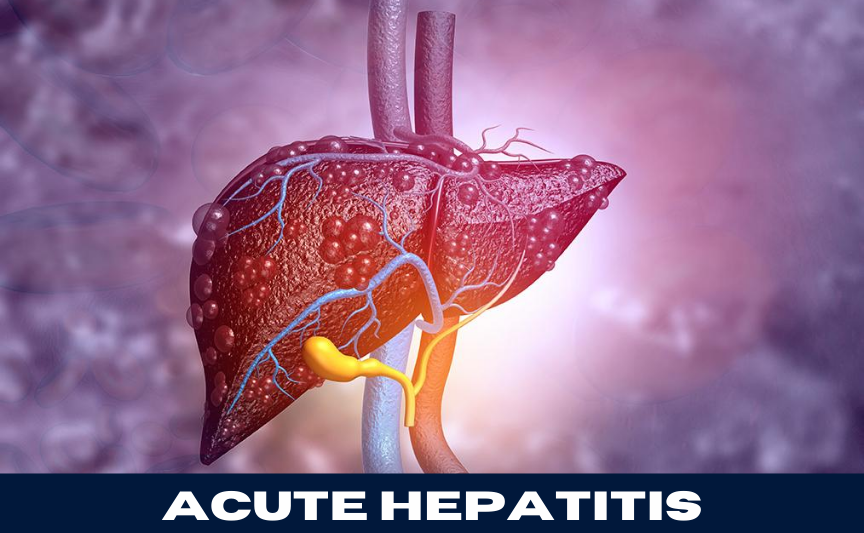Acute Hepatitis
Acute Hepatitis: Overview, Diagnosis, and Management
Acute hepatitis is a sudden inflammation of the liver, often caused by viral infections (Hepatitis A & E), alcohol, or toxic substances like unprescribed medicines and herbal supplements. It commonly presents with fever, nausea, vomiting, weakness, and yellowing of the skin and eyes (jaundice). Hepatitis A and E are the most common waterborne infections in India, spreading through contaminated food and water. Alcohol and certain medications, including herbal and over-the-counter drugs, can also cause liver inflammation.
Diagnosis
Doctors diagnose acute hepatitis based on:
✔ Symptoms – Fever, nausea, jaundice, dark urine, loss of appetite.
✔ Blood tests – Liver function tests (LFTs) to check liver enzymes and bilirubin levels.
✔ Viral markers – Tests for Hepatitis A, B, C, and E to identify the cause.
✔ Ultrasound – To check liver size and rule out complications.
Management & Treatment
Most cases of acute viral hepatitis improve with rest, hydration, and supportive care. There is no specific antiviral treatment for Hepatitis A or E, but:
✅ Hydration & Nutrition – Drink plenty of water and eat a balanced diet with high-protein foods.
✅ Avoid Alcohol & Unprescribed Medicines – They worsen liver damage.
✅ Medications for Symptoms – Paracetamol in safe doses for fever, anti-nausea drugs if required.
✅ Good Hygiene – Prevents the spread of viral hepatitis.
When to Seek Hospital Admission?
🚨 Immediate hospital care is needed if:
- Severe vomiting and inability to eat or drink.
- High fever with confusion or drowsiness.
- Severe jaundice with dark urine and pale stools.
- Signs of liver failure – Excessive bleeding, abdominal swelling, or altered consciousness.
To prevent hepatitis, always drink clean water, maintain hygiene, get vaccinated for Hepatitis A & B, and avoid self-medication. If you notice symptoms, consult a doctor immediately
